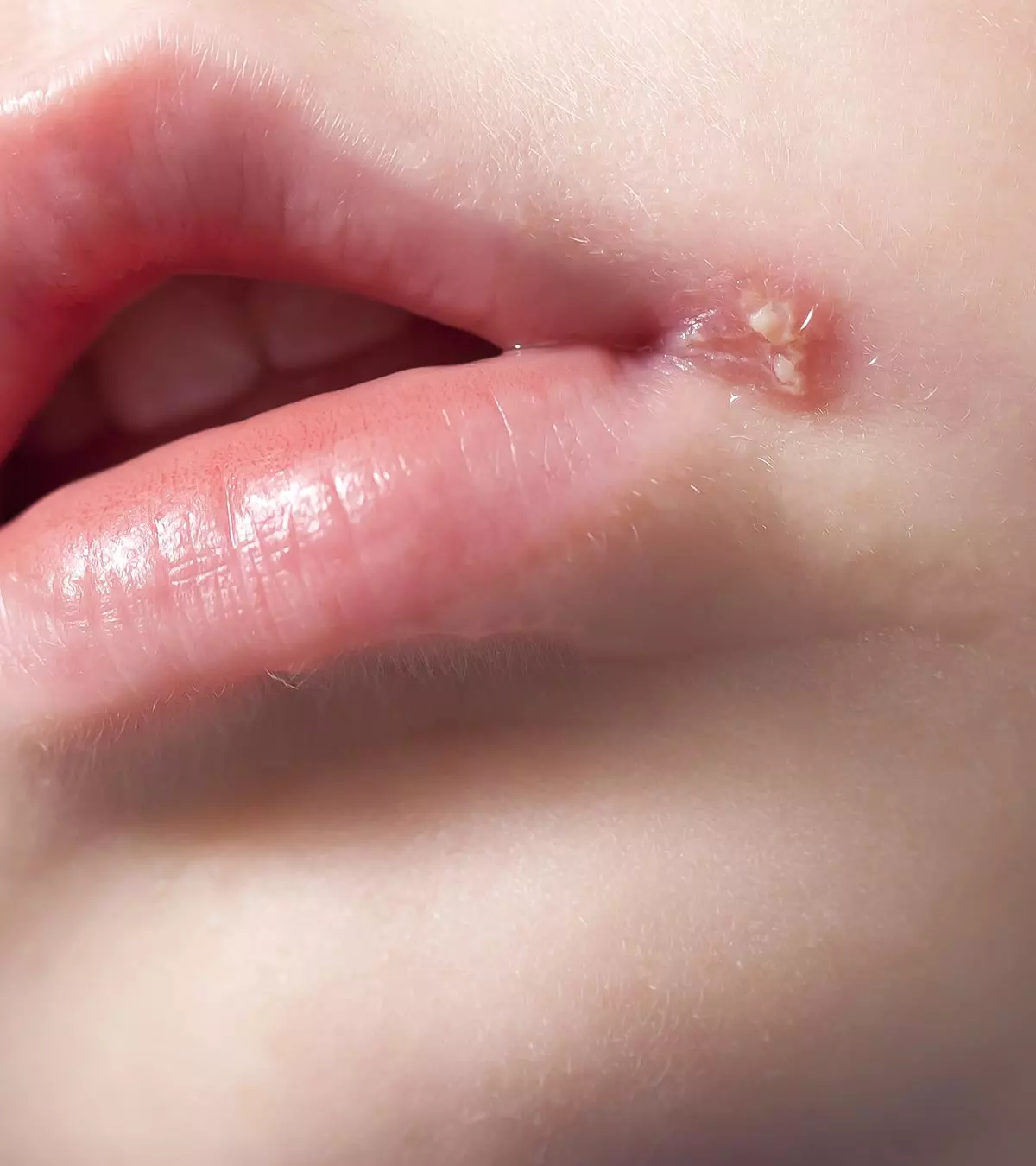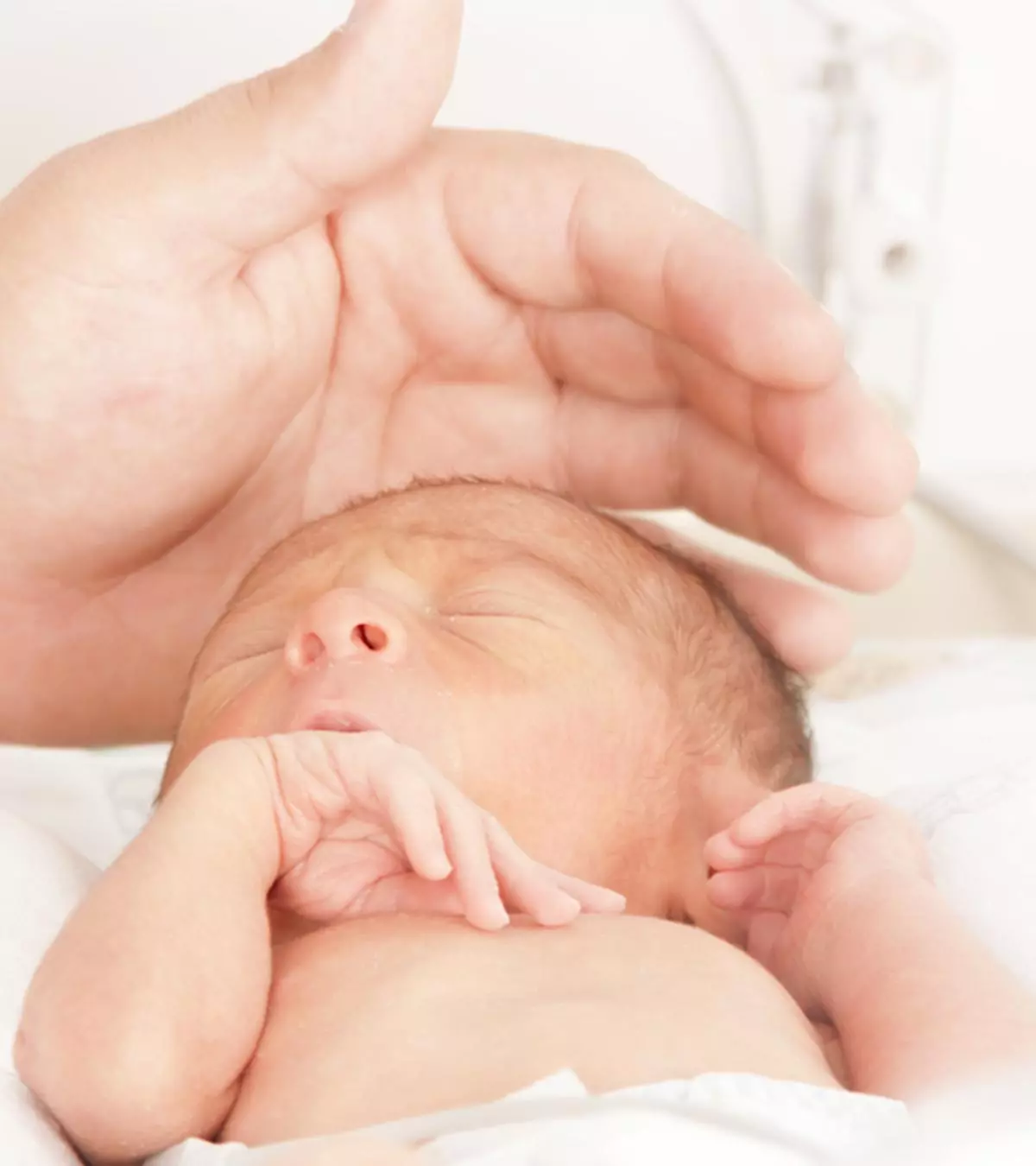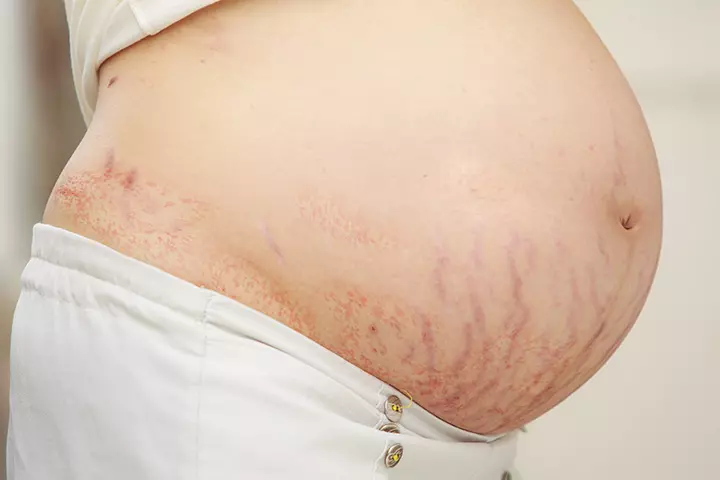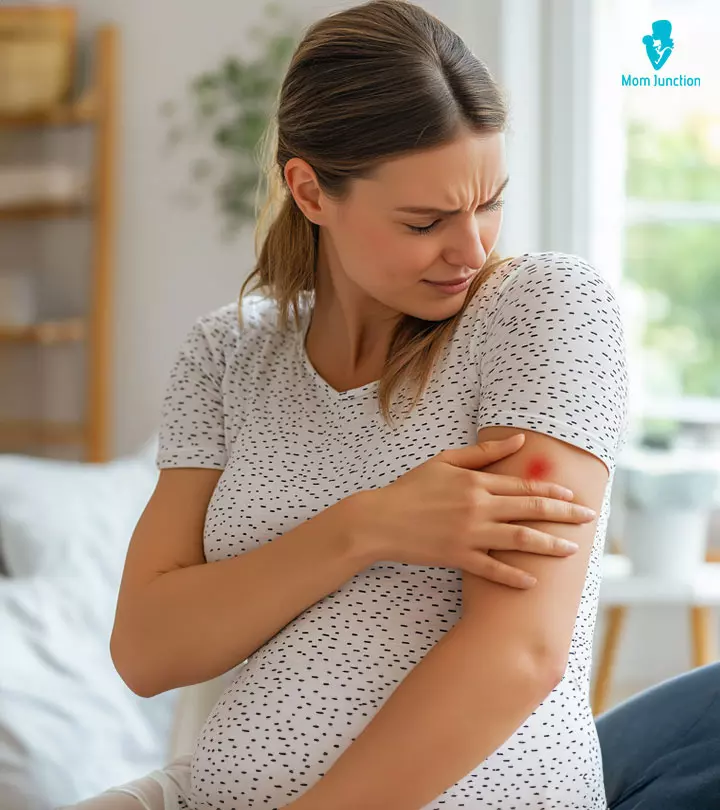
Image: Midjourney/ MomJunction Design Team
Insect bites are typically irritating, and in rare cases, can be severe. Bites and stings from common insects are usually harmless but can cause mild skin discomfort (1). No research exists on the possible effects of insect bites during pregnancy or how a sting or bite can influence the pregnancy or the fetus. Therefore, after an insect bite, you may seek medical assistance if you are unsure of the type of insect that bit you. In this post, we discuss what causes insect bites, how to identify them, and how to avoid them during pregnancy.

Key Pointers
- Insect bites can cause bumps, itchiness, pain, and severe symptoms that require immediate medical attention.
- Bites during pregnancy can cause rash, pain, swelling, and severe reactions that warrant immediate medical attention.
- Treatment for insect bites includes removing the sting, applying cold compress, and taking painkillers. Severe cases may require CPR and epinephrine drugs.
- Insect bites during pregnancy can cause complications such as preterm deliveries and the spread of diseases.
- Prevention methods for insect bites during pregnancy include wearing protective clothing and using insect repellents.
Are Insect Bites Dangerous When Pregnant?
Insect bites may not be dangerous all the time. In some cases, the bite may get infected, causing either allergic reactions or serious illnesses (such as malaria and LymeiA severe disease caused by tick bites disease) (2). As per the American College of Allergy, Asthma,& Immunology, an estimated 1.6% to 5.1% of people in the US have faced life-threatening allergic reactions (3). Bites and stings from certain mosquitoes, flies, ticks, spiders, ants, wasps, bees, yellow jackets, and hornets usually lead to a small, reddish lump or bump on the skin, and could occasionally be itchy and painful (4).
In some cases, a severe allergic reaction to the bite can lead to symptoms such as trouble during swallowing, breathing problems, swelling of the face and mouth, lightheadedness, and dizziness during pregnancy (4). These symptoms warrant immediate medical treatment.
If an insect bite leads to a severe allergic reaction or is causing discomfort, check with your doctor for diagnosis and treatment.
Causes Of Insect Bites During Pregnancy
Pregnant women can be bitten by a variety of insects, depending on their exposure to the insects’ habitats. Bites can potentially be from midges, fleas, lice, mosquitoes, and bed bugs (5). Also, arachnids (such as ticks, mites, and spiders) though not strictly insects, can cause bites (6).
You may be at higher risk of insect bites if you:
- Spend time or work outdoors
- Do not protect yourself properly when visiting gardens, parks or other spaces with thick vegetation

 Did you know?
Did you know?Symptoms Of Insect Bites During Pregnancy
Primarily, you may notice a small puncture wound in the skin. The reaction you have to the bite could determine the type of insect you were bitten by (7).
In some cases, you are likely to experience one or more of the following symptoms:
- Rash or redness
- Pain in the affected area
- Swelling
- Itching
- Hives
- Numbness or tingling
- Heat in and around the bitten area

Some may experience an allergic reaction (anaphylaxisiA potentially life-threatening allergic reaction ) that could lead to symptoms such as (3) (8):
- Fever
- Nausea or vomiting
- Abdominal cramps
- Eye pain
- Difficulty in breathing and swallowing
- Rapid heartbeat
- Muscle spasms
- Loss of consciousness
When To Seek Medical Advice
Some of these symptoms, especially anaphylactic shock after a bee sting or insect bite, are severe and warrant immediate medical attention.
Consultant obstetrician and gynecologist Dr. Shashwat Jani advises, “Insect bites during pregnancy can pose health risks. Seek medical attention if you experience severe symptoms such as difficulty breathing, rapid heartbeat, or dizziness. Stay informed about diseases like Zika and West Nile virus, and consult your healthcare provider for personalized advice to maintain a healthy pregnancy.”
If you feel these allergic symptoms or any other flu-like symptoms, your doctor may suggest some tests to diagnose the disease or infection you may have developed from the bite.
Safe Treatment For Insect Bites In Pregnancy
Early treatment may help mitigate the symptoms and after-effects of insect bites in pregnancy. Most bites and stings could be treated at home, in case the reaction is mild.
The foremost step for bites and stings could be removing the sting, hairs, or tick in the skin. Do not use any sharp object or tweezers as it could increase the amount of venom released from the bite (3).
- Apply a cold compress: If you are aware of the insect bite, wash the area with water immediately. Applying an ice pack may reduce the pain and swelling (4).
- Anti-itch creams and ointments: Calamine lotion, Benadryl, hydrocortisone cream or ointment, or antihistamine tablets could help relieve itching. As per a study, antihistamines were less used in pregnant patients with hymenoptera (bee, wasp, or hornet) exposures (9).
- Painkillers: Over the counter medications, including acetaminophens (paracetamol) or non-steroidal anti-inflammatory drugs (ibuprofen) may be prescribed for pain and inflammation associated with insect bites (4).

- First-aid: If the person has a severe reaction and has difficulty breathing, you may have to begin CPR (Cardiopulmonary resuscitation). Loosen the clothes, lay them down to the side, and perform CPR until paramedics arrive (6). You may also use the EpiPen from the person’s emergency kit if they have one.
EpinephrineiA hormone as well as a neurotransmitter, also called adrenalin drug (Adrenalin, EpiPen, Symjepi) is the drug of choice for shock, angioedema, airway obstruction, bronchospasm and urticariaiItchy, raised red spots on the skin as a result of allergic reaction to specific foods, medicines, infection, or emotional stress severe anaphylactoid reactions (10).
 Quick tip
Quick tipComplications Of Insect Bites During Pregnancy
Some insect bites can spread diseases with a few mild symptoms. However, little is known about such complications during pregnancy.
- In rare cases, mosquitoes can pass the West Nile Virus (WNV) to humans. This viral infection might cause severe symptoms such as fever, tiredness, headache, swollen glands, body aches, or a skin rash on the tummy. CDC gathered data of 70 pregnant women who had WNV in 2003, and the risk appeared to be comparatively low in fetuses (11). There were only a few reported cases of newborns with WNV (12).
- Some tick bites may carry Borrelia burgdorferi bacterium that causes Lyme disease. In this case, you are likely to experience symptoms such as fever, stiff neck, muscle or joint pains, facial paralysis, and heart palpitations. As per a CDC report, if Lyme disease is not treated during pregnancy, it can infect the placenta. It could pass on to the fetus too, although it happens rarely. However, early treatment makes it less of a risk during pregnancy (13).
- Preterm deliveries have occurred despite tocolysis after insect bites (14).
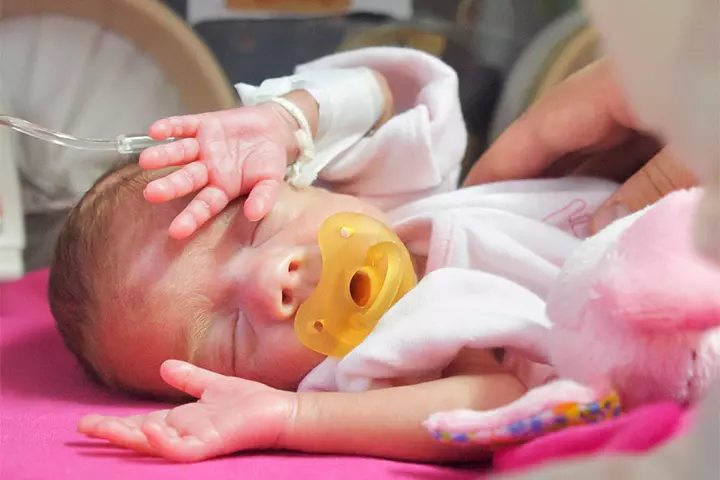
- Mortality associated with insect bites is from hypersensitivityiAn excessive immunological response to a medication or other substance reactions either anaphylactic (IgE) or anaphylactoid (non IgE mediated).
- Anaphylaxis from an insect’s sting can lead to placental abruption, fetal death, and the formation of a retroplacental clot (14).
Are Pregnant Women More Prone To Mosquito Bites?
According to a study published in the British Medical Journal, malaria-carrying mosquitoes (Anopheles gambiae) find pregnant women to be more attractive than non-pregnant women (15). Around 36 pregnant women were compared with 36 non-pregnant women of Gambia, and pregnant women attracted twice the number of mosquitoes than their non-pregnant counterparts.
One observation was that women in advanced pregnancy state exhale 21% more air than non-pregnant women. Mosquitoes are, therefore, attracted to extra moisture and carbon dioxide in the exhaled breath.
Another observation was the abdomen temperature, which was likely to be 0.7C hotter in pregnant women. Volatile substances released from the warm skin surface, therefore, attracted the insects (5).
This is just one speculation and could be a reason why insects find pregnant women more attractive. Understanding these factors can help pregnant women take proactive steps and prevention strategies, reducing their risk of bites and potential complications.
Preventing Insect Bites During Pregnancy
Obstetrician and gynecologist Dr. Veena Madhankumar suggests, “I emphasize preventing insect bites during pregnancy by using pregnancy-safe insect repellents (such as those with DEET in safe concentrations), wearing protective clothing, and avoiding areas with high insect activity.”
Here are some precautions to lower your risk of insect bites and stings during pregnancy next (16) (17):
- Wear fully covered clothes. Light-colored clothing appears to be less attractive to many biting insects. If you are outside during mosquito or tick-active hours, cover your skin by putting on long sleeves, long trousers, shoes, and socks.
- Periodic pest control may eliminate nests and minimize the reproduction of biting insects.
- Avoid strongly scented products such as perfumes, deodorants, soaps, and shampoos as the odor can attract insects.
- Avoid going out at dawn and dusk as mosquitoes, and other insects are highly active. Close the doors and windows around this time.
- Stay away from flowering plants, ponds and swamps, compost, and rubbish areas as insects nest or congregate in these areas.
- Consider using mosquito nets around your bed.
- Consider using mosquito nets for outdoor sleeping areas, especially in high-risk regions.

- Make sure window and door screens are in good condition to keep bugs out.
- Have your pets regularly treated for fleas.
- Using insect repellents containing DEET (N, N-ethyl-m-toluamide, or m-DET) could help.
 Quick tip
Quick tipNext, we answer some queries about insect bites and pregnancy.
Frequently Asked Questions
1 Can insect bites harm my unborn baby?
Some insect bites could transfer viruses from mother to the unborn baby, causing complications. There is one evidence of Zika virus-carrying mosquitoes. According to the CDC, the Zika virus is found to infect the mother and leads to microcephaly and other severe fetal brain defects in the baby. Microcephaly is a birth defect where a baby’s head grows smaller than expected and causes developmental delays (18).
2. What should I do if I experience severe symptoms from an insect bite?
If you experience severe symptoms such as difficulty breathing, swelling of the face, or dizziness after an insect bite, seek immediate medical attention. These symptoms may indicate a severe allergic reaction or anaphylaxis, which can be life-threatening.
3. Can insect bites cause miscarriage?
Although not common, bites and stings from creatures that have venom are likely to cause miscarriage. Zika virus, which is transmitted through mosquitoes, may cause problems such as miscarriage, stillbirth, and birth defects (19).
4. Is insect repellent safe during pregnancy?
Insect repellents registered by the EPA (Environmental Protection Agency) are considered to be safe and effective for pregnant women. Those containing DEET, picaridiniA synthetic insect-repellent component based on the piperidine molecule commonly found in pepper plants , IR3535, lemon eucalyptus oil, and para-menthane-diol could help. You should remember to use them carefully as directed on the labels. Avoid using them near eyes, mouth, nose, ears, and cut skin (20).
5. At what stage in pregnancy does the Zika virus affect the baby?
Zika virus infection during early pregnancy may be more likely to affect the fetus. However, infection with Zika anytime during pregnancy may cause congenital anomalies (21).
Insect bites during pregnancy may pose a possible risk of developing insect-borne illnesses. Although the bites may not always make you sick, you may stay away from insect habitats and use netting on windows or repellents to avoid possible risks. Malaria, Zika, and Lyme disease are some of the insect-borne diseases that can affect pregnancy and babies. Some may develop localized or general allergic reactions after a bite. You may use ice compress, anti-itch creams, or painkillers to treat pain, itching, and irritation on bite sites.
Infographic: Preventing Insect Bites During Pregnancy
When you know the possible complications that might be caused due to insect bites during pregnancy, it is essential to abide by the preventive measures. To help you remember these measures easily, we have compiled them in the following infographic. Keep it handy and share it with others too.
Some thing wrong with infographic shortcode. please verify shortcode syntax
Illustration: Effective Remedies To Treat Insect Bite In Pregnancy
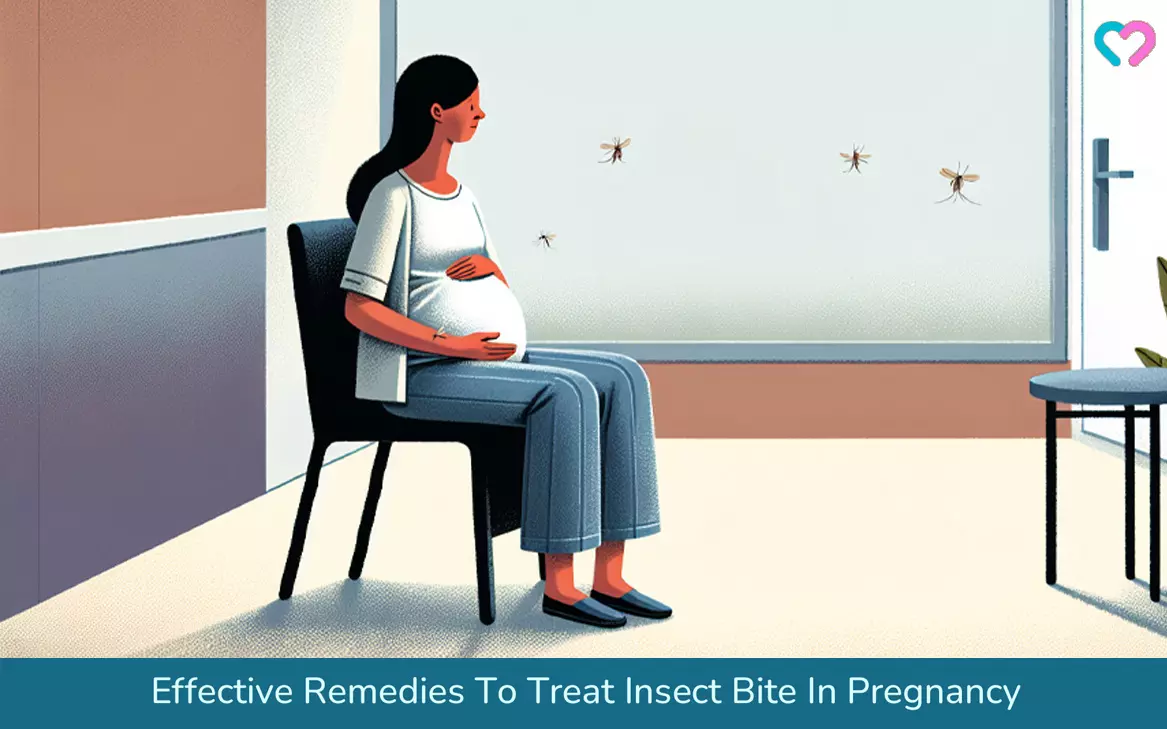
Image: Dall·E/MomJunction Design Team
Pregnant women frequently express worry about using insect repellent. Watch this helpful video to learn about the risks of using mosquito repellent during pregnancy.
References
- Allergies to bites and stings.
https://www.betterhealth.vic.gov.au/health/conditionsandtreatments/allergies-to-bites-and-stings - Vector-borne diseases: Mosquitoes ticks biting flies… how far will they go?
https://www.pasteur.fr/en/research-journal/reports/vector-borne-diseases-mosquitoes-ticks-biting-flies-how-far-will-they-go - Insect Sting Allergies.
https://acaai.org/allergies/allergic-conditions/insect-sting-allergies/ - Insect bites and stings.
https://www.nhs.uk/conditions/insect-bites-and-stings/ - Roger Dobson; (2000); Mosquitoes prefer pregnant women.
https://pmc.ncbi.nlm.nih.gov/articles/PMC1127358/#__ffn_sectitle - Insect bites and stings.
https://medlineplus.gov/ency/article/000033.htm - Insect bites and stings.
https://www.healthdirect.gov.au/insect-bites-and-stings - Symptoms-Insect bites and stings.
https://www2.hse.ie/conditions/insect-bites-stings/symptoms/ - M.P. Ramirez-Cruz et.al; (2025); Envenomations during pregnancy reported to the national poison data system, 2009–2018.
https://www.sciencedirect.com/science/article/abs/pii/S0041010120303391 - Epinephrine Injection.
https://medlineplus.gov/druginfo/meds/a603002.html - Evaluation of Infants Born to Mothers with West Nile Virus Infection.
https://www.aafp.org/pubs/afp/issues/2004/0701/p204.html - West Nile and Pregnancy.
https://www.cdc.gov/west-nile-virus/causes/pregnancy.html - How Lyme Disease Spreads.
https://www.cdc.gov/lyme/causes/index.html - Steffen A. Brown et.al; (2013); Envenomations and Antivenoms During Pregnancy.
https://www.sciencedirect.com/topics/nursing-and-health-professions/hymenoptera-venom - Jean Baptiste Yaro et.al; (2025); Risk factors for Plasmodium falciparum infection in pregnant women in Burkina Faso: a community-based cross-sectional survey.
https://malariajournal.biomedcentral.com/articles/10.1186/s12936-021-03896-8#:~:text=Pregnant%20women%20are%20also%20more - Don’t Let the Bugs Bite! — Tips for Bug Bite Prevention & Treatment During Pregnancy.
https://www.lamaze.org/Giving-Birth-with-Confidence/GBWC-Post/dont-let-the-bugs-bite-tips-for-bug-bite-prevention-treatment-during-pregnancy - Mosquitoes, Ticks & Other Arthropods.
https://wwwnc.cdc.gov/travel/yellowbook/2025/environmental-hazards-risks/mosquitoes-ticks-and-other-arthropods - Microcephaly.
https://www.cdc.gov/birth-defects/about/microcephaly.html - Congenital Zika Syndrome and Other Birth Defects.
https://www.cdc.gov/zika/czs/index.html - Insect Repellent: What Pregnant & breastfeeding women Need to Know.
https://www.cdph.ca.gov/Programs/CID/DCDC/CDPH%20Document%20Library/InsectRepellentandPregnancyGuideFinal.pdf - Zika virus and pregnancy.
https://www.marchofdimes.org/find-support/topics/pregnancy/zika-virus-and-pregnancy - Mosquito Bites.
https://my.clevelandclinic.org/health/diseases/17695-mosquito-bites
Community Experiences
Join the conversation and become a part of our nurturing community! Share your stories, experiences, and insights to connect with fellow parents.
Read full bio of Dr. Irene (Eirini) Orfanoudaki
- Dr. Shashwat Jani is a consultant obstetrician & gynecologist in Smt. N.H.L. Municipal Medical College, Ahmedabad. He has 14 years of experience with a special interest in high-risk pregnancy, infertility, and endoscopy.
 Dr. Shashwat Jani is a consultant obstetrician & gynecologist in Smt. N.H.L. Municipal Medical College, Ahmedabad. He has 14 years of experience with a special interest in high-risk pregnancy, infertility, and endoscopy.
Dr. Shashwat Jani is a consultant obstetrician & gynecologist in Smt. N.H.L. Municipal Medical College, Ahmedabad. He has 14 years of experience with a special interest in high-risk pregnancy, infertility, and endoscopy. 
Dr. Veena Madhankumar is an experienced obstetrician and gynecologist with 25 years of clinical expertise. She completed her MBBS from Coimbatore Medical College, India, in 1999 and pursued her MD in Obstetrics and Gynecology from Sri Ramachandra Medical College, Chennai, India. Dr. Madhankumar has been associated with iCliniq for over a decade, providing expert medical consultations and guidance. She has also established a practical laparoscopy training course.
Dr. Veena Madhankumar is an experienced obstetrician and gynecologist with 25 years of clinical expertise. She completed her MBBS from Coimbatore Medical College, India, in 1999 and pursued her MD in Obstetrics and Gynecology from Sri Ramachandra Medical College, Chennai, India. Dr. Madhankumar has been associated with iCliniq for over a decade, providing expert medical consultations and guidance. She has also established a practical laparoscopy training course.
Read full bio of Rebecca Malachi
Read full bio of Swati Patwal
Read full bio of Dr. Joyani Das









